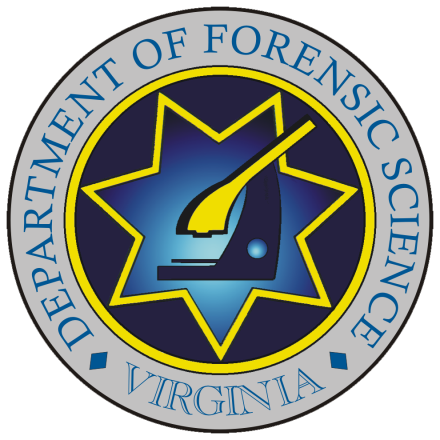For autosomal DNA testing, the Virginia Department of Forensic Science currently uses Promega’s PowerPlex® Fusion System, which includes the D3S1358, D1S1656, D2S441, D10S1248, D13S317, D16S539, D18S51, D2S1338, CSF1PO, TH01, vWA, D21S11, D7S820, D5S818, TPOX, D8S1179, D12S391, D19S433, D22S1045, and FGA plus Penta E, Penta D, DYS391 and Amelogenin loci.
Archives
What does a CODIS “hit” mean?
A CODIS “hit” can be made by a DNA profile from evidence in an unsolved case matching the DNA profile from a convicted offender or an arrestee. A “hit” can also be made between evidence in an unsolved case and another unsolved case or to a previously solved case.
The fact that the DNA profiles matched is meant to provide an investigative lead to the detective or investigator, to help solve the particular unsolved case. He/she will need to conduct further investigation to determine any possible involvement of the convicted offender, arrestee, or the perpetrator of the solved case to the unsolved case in question.
On what types of cases can a CODIS search be conducted?
CODIS searches can be conducted on the DNA profiles developed from biological evidence in cases where the identity of the perpetrator is unknown to the investigator. In theory, any biological material could yield a DNA profile if there is a sufficient number of cells from the perpetrator.
What is CODIS?
CODIS stands for Combined DNA Index System. It is a national system of computer databases designed by the FBI to store DNA profiles from individuals as well as crime scene evidence. Any DNA profile developed from the evidence in a case with no suspects can then be searched against the databases, and possible investigative leads developed from any matching profiles in the database.
Who is required to provide a sample for entry of the resulting DNA profile into the Virginia DNA Data Bank?
Every person required to register for the Sex Offender and Crimes Against Minors Registry (Code of Virginia § 9.1-903), all individuals who have been convicted of a felony offense on or after July 1, 1990 or certain misdemeanors (Code of Virginia § 19.2-310.2), and juveniles 14 years or older who are convicted of a felony or adjudicated delinquent on the basis on an act which would be a felony if committed by an adult (Code of Virginia § 16.1-299.1) are required to provide a blood or buccal (cheek cells) sample for DNA analysis, with incorporation of the resulting DNA profile into the Virginia DNA Data Bank. Additionally, as of January 1, 2003, any individual arrested for a violent felony crime (Code of Virginia § 19.2-310.2:1) must provide a buccal sample for DNA analysis, with the resultant profile incorporated into the Virginia DNA Data Bank (Code of Virginia § 19.2-310.5). Inclusion in the DNA data bank may also be ordered pursuant to plea agreement in Circuit Court.
How do I request information from the Breath Alcohol Section?
For authenticated records, requests must be submitted in writing, pursuant to the Freedom of Information Act (FOIA). Further guidance on written FOIA requests can be found here.
A searchable database for electronic records is also available; however, the Department cannot authenticate electronic records, once printed, as being unaltered, complete, and/or accurate. Click here to access the Breath Alcohol Online Instrument Records page.
Are there any costs associated with the training?
There is no fee for the class. Law enforcement agencies are responsible for covering student expenses. DFS may have grant funds available, however, to assist with the cost of student lodging. Please contact the Breath Alcohol Section for details.
What happens if an operator misses a retraining class and his license expires?
Once an operator’s license expires, the operator cannot run a test. The instruments will not accept an expired license. An operator has a one-year period to take a Retraining class. If this year expires without the operator successfully completing Retraining requirements, the operator must attend another Basic (Initial) Operator’s class. Any operator who misses a scheduled class should contact the Breath Alcohol Section.
Who notifies operators about Retraining dates?
The Breath Alcohol Section will notify the law enforcement agency approximately eight weeks prior to the class. Retraining classes are conducted in the following areas: Richmond, Manassas, Tidewater, Roanoke, Blackstone and Bristol.
Where are Breath Alcohol Initial Operator classes conducted?
At the BioTech 8 building in Richmond. The building is located at 737 N. 5th Street (directly across the street from the Central Laboratory). The classroom is on the 3rd floor. Directions are located on the Breath Alcohol Training page.
